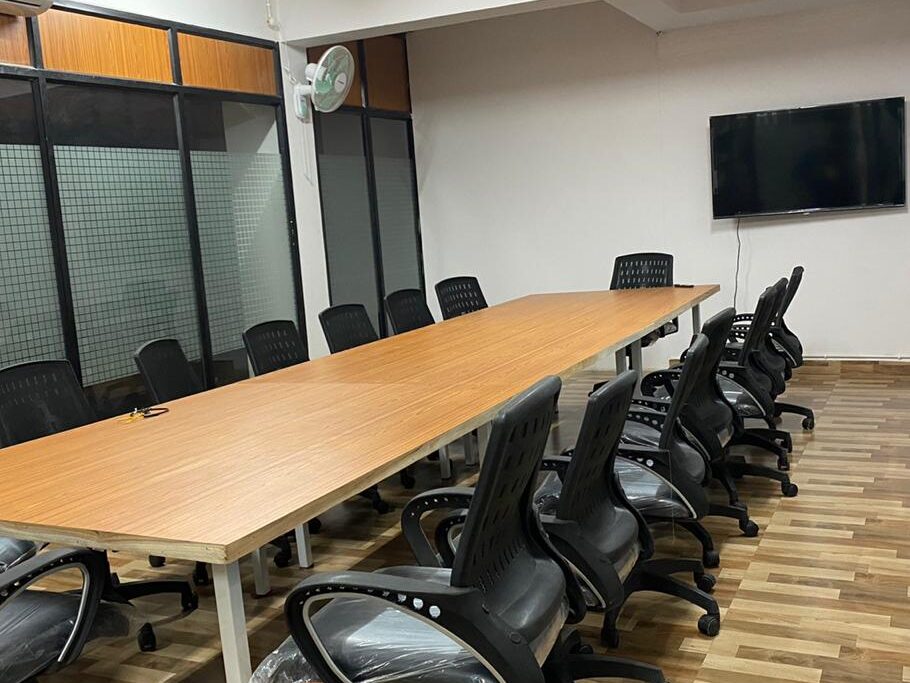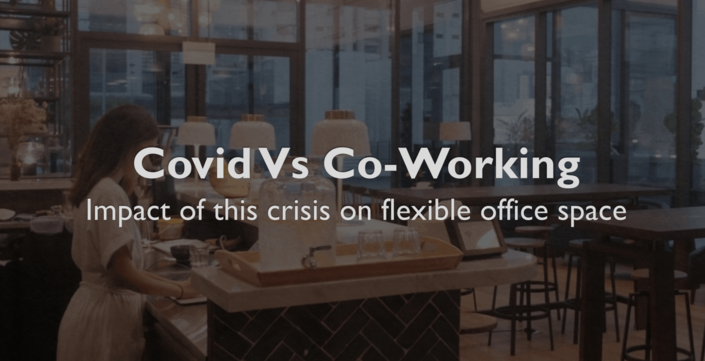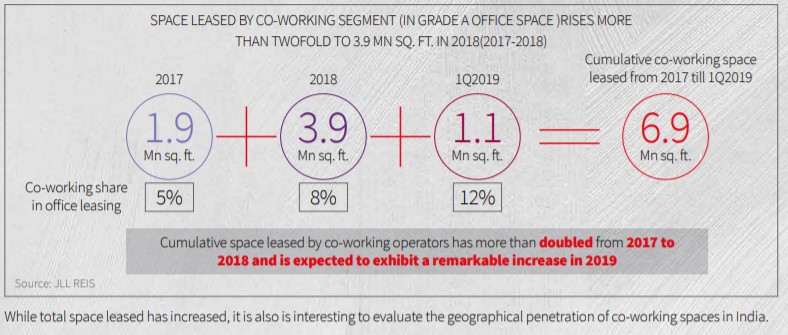here seems to be something special about coworking spaces. As researchers who have, for years, studied how employees thrive, we were surprised to discover that people who belong to them report levels of thriving that approach an average of 6 on a 7-point scale. This is at least a point higher than the average for employees who do their jobs in regular offices, and something so unheard of that we had to look at the data again.
It checked out. So we were curious: What makes coworking spaces – defined as membership-based workspaces where diverse groups of freelancers, remote workers, and other independent professionals work together in a shared, communal setting – so effective? And are there lessons for more traditional offices?
To find out, we interviewed several coworking space founders and community managers, and surveyed several hundred workers from dozens of coworking spaces around the U.S. A regression analysis following our survey revealed three substantial predictors of thriving:
People who use coworking spaces see their work as meaningful.
Aside from the type of work they’re doing – freelancers choosing projects they care about, for example — the people we surveyed reported finding meaning in the fact that they could bring their whole selves to work. They’re able to do this in a few ways.
First, unlike a traditional office, coworking spaces consist of members who work for a range of different companies, ventures, and projects. Because there is little direct competition or internal politics, they don’t feel they have to put on a work persona to fit in. Working amidst people doing different kinds of work can also make one’s own work identity stronger. Our respondents were given the opportunity to frequently describe what they do, which can make what they do seem more interesting and distinctive.
Second, meaning may also come from working in a culture where it is the norm to help each other out, and there are many opportunities to do so; the variety of workers in the space means that coworkers have unique skill sets that they can provide to other community members.
Lastly, meaning may also be derived from a more concrete source: The social mission inherent in the Coworking Manifesto, an online document signed by members of more than 1,700 working spaces. It clearly articulates the values that the coworking movement aspires to, including community, collaboration, learning, and sustainability. These values get reinforced at the annual Global Coworking UnConference. So in many cases, it’s not simply the case that a person is going to work; they’re also part of a social movement.
They have more job control.
Coworking spaces are normally accessible 24/7. People can decide whether to put in a long day when they have a deadline or want to show progress, or can decide to take a long break in the middle of the day to go to the gym. They can choose whether they want to work in a quiet space so they can focus, or in a more collaborative space with shared tables where interaction is encouraged. They can even decide to work from home, without repercussion, if they need to meet a repairperson or deal with a family member need.
And while coworkers value this autonomy, we also learned that they equally value some form of structure in their professional lives. Too much autonomy can actually cripple productivity because people lack routines. Coworkers reported that having a community to work in helps them create structures and discipline that motivates them. Thus, paradoxically, some limited form of structure enables an optimal degree of control for independent workers.
They feel part of a community.
Connections with others are a big reason why people pay to work in a communal space, as opposed to working from home for free or renting a nondescript office. Each coworking space has its own vibe, and the managers of each space go to great lengths to cultivate a unique experience that meets the needs of their respective members. Grind, for example, is a growing network of coworking spaces in New York and Chicago. Anthony Marinos, who oversees Grind’s marketing, community management, and member services, shared with us, “When it comes to cultivating our community at Grind, we’re all about the human element. We consider ourselves as much a hospitality company as we do a workspace provider. Our staff knows all of our members by name and profession, and we’re constantly facilitating introductions between Grindists.”
WeWork, which recorded a valuation of $5 billion last December, emphasizes how it “seek[s] to create a place you join as an individual, ‘me’, but where you become part of a greater ‘we.’”
Importantly, however, socializing isn’t compulsory or forced. Members can choose when and how to interact with others. They are more likely to enjoy discussions over coffee in the café because they went to the café for that purpose – and when they want to be left alone elsewhere in the building, they are. And while our research found that some people interact with fellow coworkers much less than others, they still felt a strong sense of identity with the community. We believe this comes from coworkers knowing there is the potential for interactions when they desire or need them.
So what are the implications for traditional companies? Even though the coworking movement has its origins among freelancers, entrepreneurs, and the tech industry, it’s increasingly relevant for a broader range of people and organizations. In fact, coworking can become part of your company’s strategy, and it can help your people and your business thrive. An increasing number of companies are incorporating coworking into their business strategies in two ways.
First, they’re being used as an alternative place for people to work. Michael Kenny, Managing Partner of San Diego-based Co-Merge, told us, “In the past year and a half, we’ve seen a dramatic increase in the use of the space by enterprise employees. We have seen teams come in to use various on-demand meeting rooms. We have users from global companies of size ranging from several hundred to several thousand employees who use the space not only to allow their distributed workers to get productive work done, but also to attract employees who demand flexible workplace and work time.”
Grind is also witnessing growth in the number of remote workers who are becoming members. “We haven’t had to reach out to larger organizations, they actually tend to just come to us,” Anthony Marinos says. “We’ve had employees from Visa, journalists from the Chicago Tribune, and even people affiliated with large financial institutions all work out of Grind.”
Spending time away from the office at a coworking space can also spark new ideas. Rebecca Brian Pan, the founder of COVO and former chief operating officer of NextSpace, explained how Ricoh’s innovation team worked out of NextSpace Santa Cruz for several months to observe how people work and where they hit pain points. Based on member insight and feedback, and their own observations, the Ricoh team explored several new products that could help members in their daily work and chose the most highly rated product to pursue. From this effort, Ricoh later launched this product globally as their Smart Presenter, a paperless meeting solution.
Second, the lessons of coworking spaces can be applied to corporate offices. Just as it’s important to encourage flexibility and support your mobile workforce, there is an equally important reality of creating the right kind of work environment inside your own walls. But this doesn’t just mean creating open plan layouts or adding a coffee bar.
In reality, people need to be able to craft their work in ways that give them purpose and meaning. They should be given control and flexibility in their work environment — many companies are increasingly adopting the best planning practice of providing a 1:1 ratio (or close to it) of desk seats to seats in shared settings used for either collaborative work or quiet work.
Companies are also trying to enable more connections, helping people to interact and build community beyond work meetings. Coworking spaces are one place to look for guidance, as they regularly offer networking events, training programs, social events, and even summer camp. Some companies are going even, further, however. Rich Sheridan and James Goebel, founders of Menlo Innovations in Ann Arbor, Michigan, recently expanded their office space by 7,000 square feet so that so that start-ups and early stage entrepreneurs can work alongside Menlo programmers to spur community and innovation.
In a way, the company is reverse-engineering its office into a coworking space.
Our research — which is ongoing — suggests that the combination of a well-designed work environment and a well-curated work experience are part of the reason people who cowork demonstrate higher levels of thriving than their office-based counteraparts. But what matters the most for high levels of thriving is that people who cowork have substantial autonomy and can be themselves at work. Our advice to traditional companies who want to learn from coworking spaces is to give people the space and support to be their authentic best selves. The result will be employees who feel more committed to your organization, and are more likely to bring their best energy and ideas to the office each day. Even if it is corporate headquarters.
A version of this article appeared in the September 2015 issue (p.28, 30) of Harvard Business Review.

















